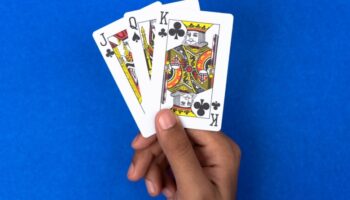If you are planning to learn more about how to win at gambling, you have come to the right place. In this article, we will go over some of the main factors you will need to be aware of in order to make informed decisions when playing betflixasia. These include Card counting, Physiological arousal, Erroneous beliefs, the Near-miss effect, and Cognitive distortions.
Card counting
Card counting is a technique used by blackjack players to predict the outcome of the cards in a hand. The goal is to win more money than the house. There are several ways to do this.
The basic idea is to keep a running count of the cards and the number of low cards and high cards in the deck. This count will vary depending on the system you use. A higher number of high cards is more advantageous.
One of the simplest systems is called Hi-Lo. It requires the player to keep a tally of the numbers in his or her head.
Near-miss effect
The near-miss effect of decisions to earn from gambling is a behavioral response to losing events that come very close to winning. They elicit a range of cognitive distortions, including the tendency to overestimate the probability of winning. Near misses are often rated as less pleasant than wins. These aversive emotional states are believed to contribute to the effect.
Near-misses activate the same reward-related brain circuitry as wins, according to a study by Clark, Lawrence, Astley-Jones, and Gray. This effect is most pronounced when there is little time between the decision to put money down and the start of the game.
Several hypotheses have been proposed to explain the near-miss effect. One is that the effects are a product of frustration, eliciting inappropriate reinforcement learning signals. Another is that they enhance dopamine transmission, which leads to increased risk-taking.
Erroneous beliefs
There is no denying that gambling is a fun and rewarding experience. While the odds of winning are slim, many gamblers still believe they can win. The elusive holy grail of gambling is to win the big one, which requires a little luck of the draw. Some gamblers even employ a team of experts to ensure they have the best chance of success.
It’s no secret that gaming aficionados are prone to risk-taking, but it’s also no surprise that they rely on their brains for inspiration. As such, it makes sense that they take note of the aforementioned small talk. And, who knows, their subconscious may even be rewarded by a hefty bonus.
Physiological arousal
When it comes to gambling, one of the most contested topics is whether physiological arousal is a significant factor in decision-making. There are several studies that explore this subject. Some are experimental, while others investigate arousal as a general psychological phenomenon.
The effects of arousal on gambling decisions are often evaluated using hypothetical choices. Some researchers manipulate arousal by using different contextual factors to induce associations between lottery images and arousal. Others, such as Hirsch (1995) odorized the slot-machine area of a Las Vegas casino.
The arousal effect may also be due to phase abnormalities, which cause reduced sensitivity to negative consequences and hypersensitivity to reward. These effects are often observed when males are stressed.
Cognitive distortions
Gambling cognitive distortions are prevalent in problem gambling and have been associated with a high frequency of gambling. They include false beliefs about personal ability, erroneous beliefs about the probability of winning, and misrepresentations about the chances of losing.
In the current study, the relationship between problem gambling and gambling-related cognitive distortions was investigated. Cognitive distortions were examined using the Gambling Related Cognitions Scale (GRCS). GRCS is a 23-item questionnaire that assesses five gambling-related cognitive distortions. The subscale scores are correlated with the total score, a measure of the degree of gambling-related cognitions.
To examine the relationships between the subscales and gambling frequency, a mixed 2 x 2 ANOVA was conducted. Results showed moderate to strong correlations.
Personal control
When gambling, people often use self-control strategies to limit the amount they spend and the frequency of their gambling activities. These strategies can help prevent gambling-related harm and improve public health initiatives related to gambling.
Studies have shown that people who adopt these strategies are less likely to report harm. However, there are few studies examining the specific factors that influence self-control strategies. A recent study explored the factors that influence the development and use of these strategies.
The study included a sample of Canadian adults. Participants were surveyed on gambling behavior, limit-setting strategies, and gambling-related harm. This research was part of a larger project to develop Lower-Risk Gambling Guidelines.






